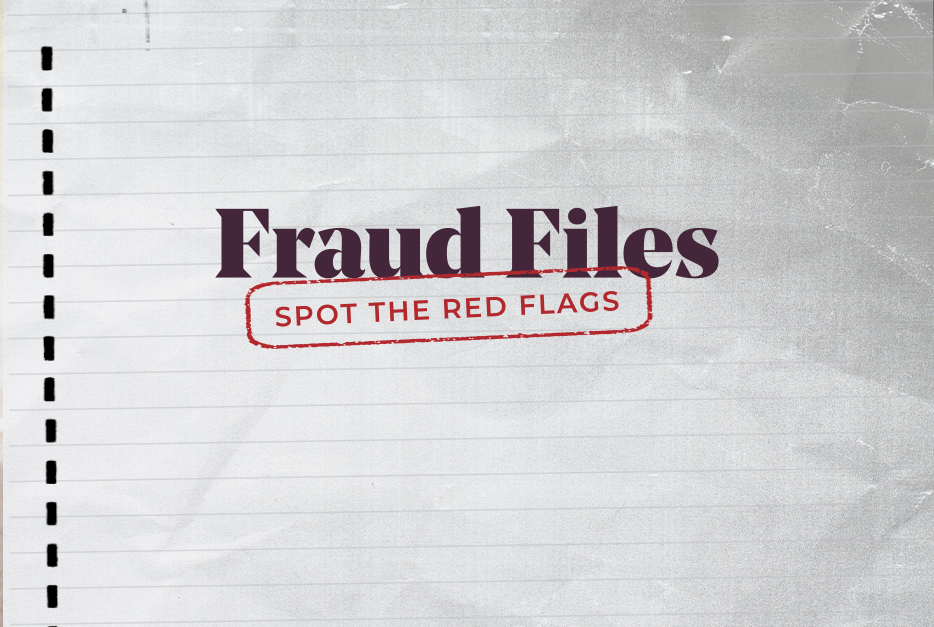Fraud Files: Immigration scams
What happened?
Shyla and Amir moved to Canada in 2021 and slowly began the process of settling into a new country with their family. They were enjoying their new neighbourhood, making friends at work and in the community. One day Amir received a phone call from someone claiming to be from the government. The person explained that there was an issue with his immigration status and that if he wanted to remain in Canada, he’d have to pay a $5,000 fine.
As Amir tried to understand what went wrong with his paperwork, the person on the other end of the line became more agitated and their tone changed toward threatening. Amir was told if he didn’t pay the fees right away, he and his whole family would lose their home and potentially be arrested or deported. He was also told he could not share this information with anyone and would need to send the money by pre-paid credit cards.
Shyla and Amir were embarrassed that they hadn’t completed their Immigration forms correctly and felt they had no choice but to pay the fine to keep their family safe. After they sent the pre-paid cards to the address provided, they waited to hear back from the government that their status in Canada was secure. When no one contacted them to confirm the cards were received, they eventually told a friend what happened and their friend advised them to contact SCU.
The scam
-
The phone call: Immigration, Refugees, and Citizenship Canada (IRCC) would never contact you by phone to collect any fees or fines. If someone calls you and claims to be from the government you can ask for their name, hang up the phone, and call the IRCC Call Centre to ask if the call is legitimate.
-
Asking for personal and banking information: The IRCC would never ask you for personal information or banking information over the phone and they would never rush you into paying right away. They would not ask you to pay using pre-paid credit cards, Convera (formerly Western Union), gift cards, or any other similar service.
-
The threat:If the person calling becomes aggressive and starts to threaten you in any way, that’s a definite red flag that the call is fraud, and you should hang up immediately. The IRCC will not threaten you to get you to pay any fees owing to the government
What happens on our side
We encourage members to reach out to their branch to ask questions before they send money in situations like these. In this case, the members were understandably too afraid to ask for help and they fell victim to the scam, losing thousands of dollars. But because they notified SCU after the fact, we were able to determine if they were at risk for future scams. Contacting your branch to let us know what happened allows us to ensure your account isn’t continuing to be accessed by the scammers and your money is safe from continued fraud.We will also encourage you to communicate what happened with the Canadian Anti-Fraud Centre. The more information they have, the better chance they’ll have of finding the scammers and preventing them from targeting others.
Key takeaway: When you are new to Canada, there are a lot of things to learn about how companies and governments do business. We urge you to talk about these situations with someone you trust to see if it sounds legitimate before sending money, especially if the person making the request advises you to not tell anyone. While it might feel embarrassing to have been a victim of fraud, SCU understands it’s not your fault. We will work with you to understand what happened and help protect you from future fraud.
Any time you receive a phone call, text, or email that you aren’t sure is legitimate, you can always contact your SCU branch and ask us to investigate it for you. Or check out the Canadian Anti-Fraud Centre for information on known scams.
Sometimes, we can help spot and stop a fraud scam before a member loses money. Unfortunately, this is not always the case. Preventing fraud is an important responsibility we all share. SCU strongly recommends that members remain vigilant and learn to protect themselves from falling victim to fraud. Visit our Fraud Prevention Centre to learn more about fraud and how to spot it, and if in doubt, reach out to SCU for help at 1.800.728.6440.
Does this story sound familiar?
If this has happened to you, or someone you know, here’s how you can report it: scu.mb.ca/fraudprevention/reportfraud



